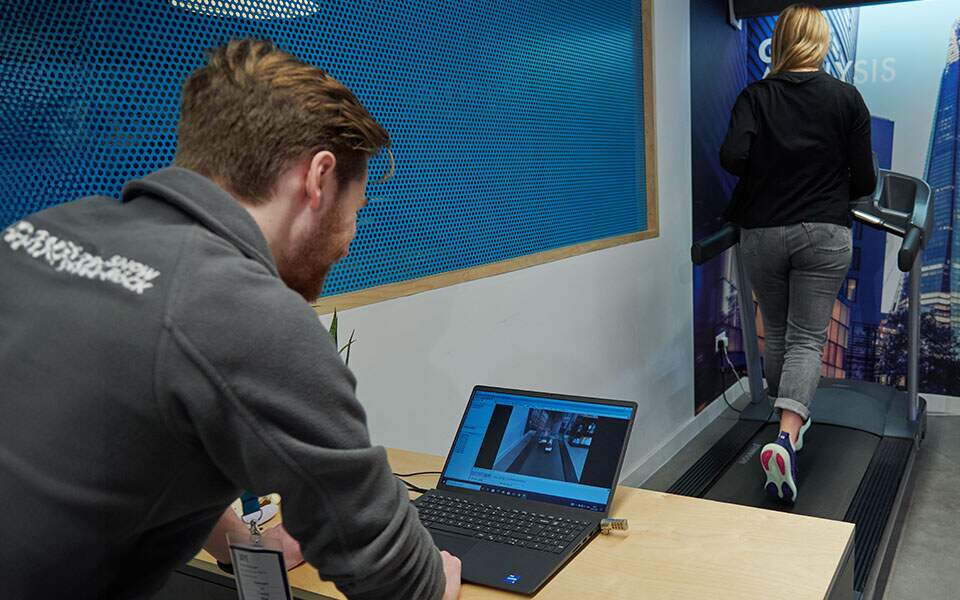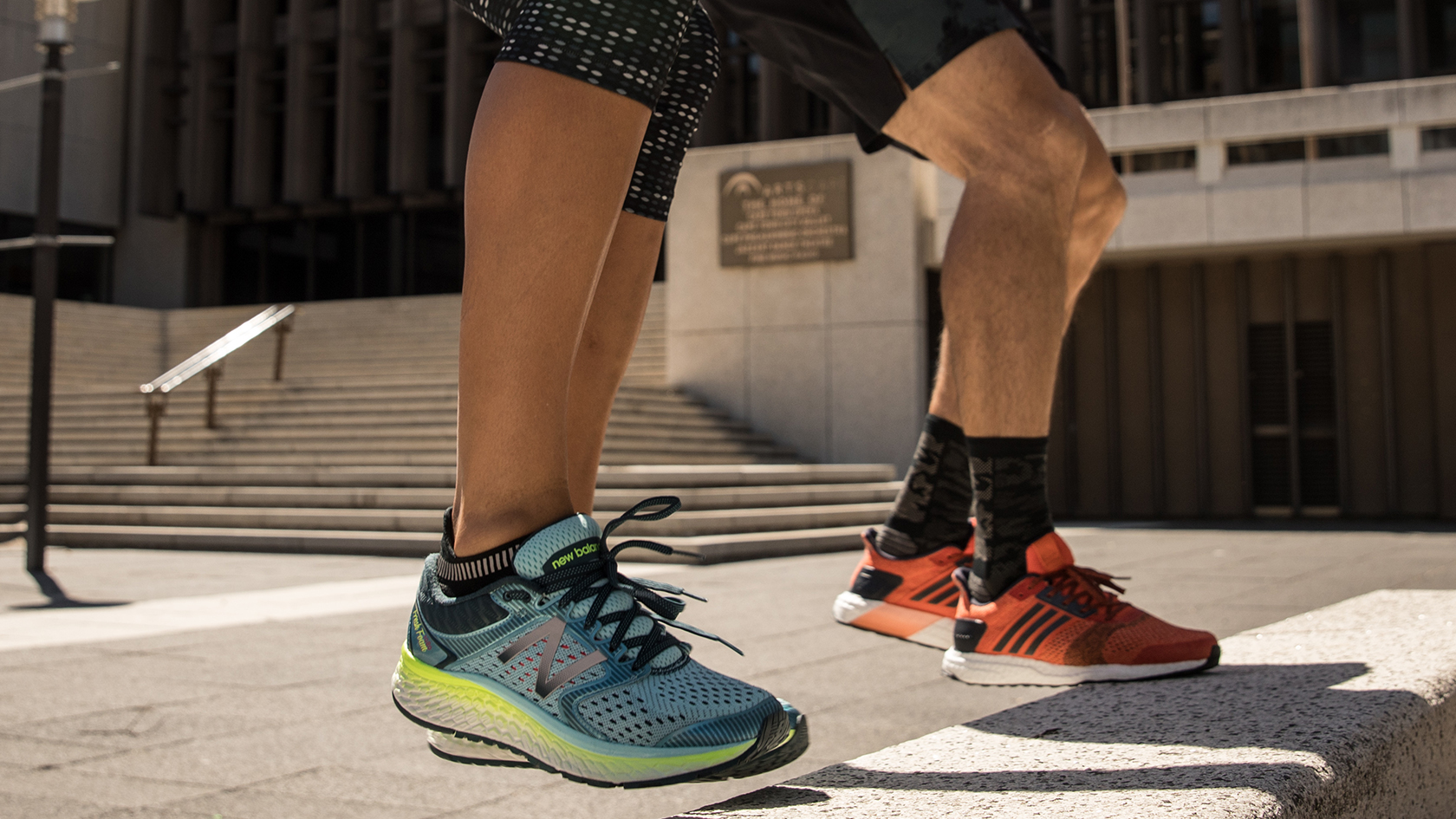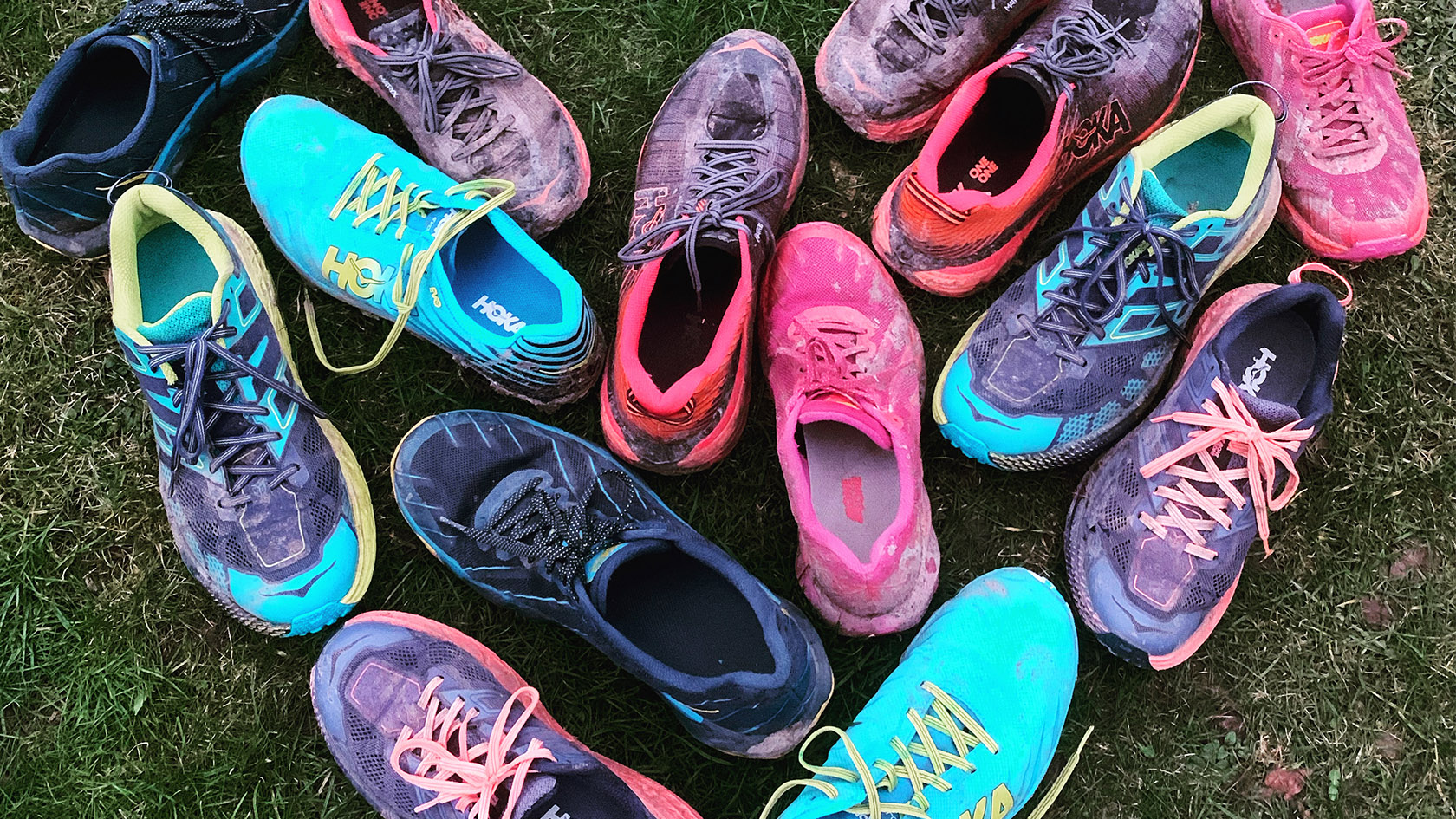How To Choose The Right Running Shoes For You
At Runners Need, we specialise in finding the right running shoes for you. We know that with so many running shoes to choose from finding your perfect pair can be a daunting task. That's why we're here to make it easy with our guide to finding the right running shoes.
There's a shoe to suit every runner, whether running high mileage, low, or medium, on the roads, trails, or tracks. So, whether you need a wider toe box, a neutral shoe, a specific heel-to-toe drop, more energy return, or something to control your foot roll - we have the running shoes to meet your needs.
Where Are You Running?
At Runners Need, we specialise in having the right shoe for every run. One of the first questions you must ask yourself when buying a pair of running shoes is: "Where will I be running?"
If your training is more on pavements and tarmac in cities and towns, you need Road Running Shoes. The most common type of trainer, road running shoes are well-cushioned and highly shock-absorbant to help protect your joints against the impact of hard surfaces, reducing your risk of injury and giving you a more comfortable ride.
- We don't recommend using road running shoes on trails due to their lack of grip and traction, where they can easily get damaged by the terrain and debris.
If your training is more off-road on grass, through fields, and soft, muddy trails, you're better off in Trail Running Shoes. Unlike the ease of running on flat tarmac, trails come with varied terrain like roots, rocks, pebbles, puddles, and slick mud. That's why trail running shoes come with better grip, traction, and ankle support, with rugged outsoles, deeper tread, and lugs that prove vital for running on uneven terrain.
- We don't recommend using trail running shoes on roads as the rugged outsoles and lugs will press into the soles of your feet and wear away quickly on the hard, smooth surfaces of pavements and tarmac.
What Distance Are You Running?
As well as the terrain underfoot, you must select the right pair of shoes to go the distance you require. If you're training for a marathon or event, you'll require a different running shoe than running a 5k in the park. Long distances require a more cushioned shoe, while shorter, everyday runs need a more flexible training shoe.
Lightweight and Race Running Shoes are typically lighter and therefore more flexible. These shoes tend to come with decreased weight and more flexible cushioning, that combines the best of being minimal with cushioning to protect your feet. Lightweight shoes will decrease your fatigue and pain after a run, as well as being incredibly comfortable over long distances.
A good pair of running shoes provides comfort, flexibility, durability, and support - but only when put on the right foot. That's where your gait comes in.
Your gait is measured by how much you pronate. Pronation refers to how your foot rolls inwards as it strikes the floor while moving. Your pronation is your body’s way of distributing impact as you move and is a natural part of your gait cycle. Understanding your pronation is vital to selecting the correct type of running shoe for you and your run, and can ultimately help you avoid injury.
Ideal for overpronators (the most common pronation type amongst runners) Stability running shoes are designed to provide better support to the inside of the foot, which helps to stop the ankle collapsing inwards.
Ideal for underpronators and neutral pronators, Neutral running shoes are designed for runners whose feet move in a neutral motion, providing a normal amount of support in addition to cushioning and shock absorption.
Let our expert staff help put you in the right running shoes...

Gait Analysis is a service we provide at all Runners Need stores to help determine the best shoe for you.
Using video technology to analyse your running style, our in-store running experts can assess how much you pronate. They will then be able to recommend a running shoe based on foot shape, terrain, pronation and personal preference from a range of top brands like New Balance, On, ASICS, and more.
Your running shoes should always be about function, not fashion.
The brand does matter, but only to ensure you get the correct comfort, fit, and functionality. Never be tempted into the latest trends or in-fashion brands because they’re popular this season - choose the running shoes that fit you and your run. We recommend always trying on running shoes before you buy them, as slight differences in fit could negatively affect your comfort.
When popping into a Runners Need store, chat to our experts to have a Treadmill Test Run on our in-store treadmills to ensure you and your new running shoes are the perfect match.
Related Articles





